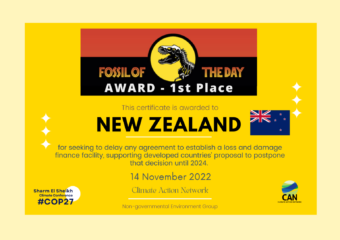Today Oxfam Aotearoa launched the world-famous campaign, What She Makes. The campaign is about asking fashion brands to pay the women overseas who make our clothes a living wage.
Oxfam Aotearoa engaged with four New Zealand founded brands, Glassons, Hallenstein Bros, Kathmandu and Macpac, and two international brands H&M and Lululemon. Today Oxfam released the results of the first step in the process: a credible commitment towards paying workers in their supply chain a living wage.
Glassons, Hallenstein Bros, and Macpac came out on top with a 5 star rating. H&M received 4 stars, Lululemon received 3 stars and New Zealand brand Kathmandu received 2.5 stars.
Oxfam Aotearoa’s What She Makes Lead Tracy Decena said:
“We want to create a race to the top between fashion brands – starting with a real, credible public commitment towards paying the women overseas who make their clothes a living wage. It’s encouraging to see New Zealand founded brands leading the race. Even though some brands did better than others, we want to acknowledge that every brand made some progress. Yet, there is much more to be done, and you can bet we’ll be there supporting and pushing these brands towards the end goal.
“The women making our clothes often work up to 12 hours a day and then extra overtime, but because they make as little as 65 cents an hour, they don’t have enough money for decent housing, food or healthcare – let alone any savings. We are working to change this.
“We encourage our supporters, fashion lovers, and anyone who believes poverty can be a thing of the past to join us by signing the pledge and demanding fashion brands to do better.”
The What She Makes Brand Tracker
For rating and rationale head to https://www.oxfam.org.nz/what-she-makes-brand-tracker/
Our ask of New Zealanders
Oxfam Aotearoa will be asking Kiwis to let brands know they want them to do better, and to stand with the women who make their clothes. They can start by joining the campaign and signing the pledge through: https://www.oxfam.org.nz/what-she-makes-sign-the-pledge/.
Our ask of the brands
The What She Makes campaign calls on clothing brands that sell clothes here in Aotearoa New Zealand to make sure the garment workers in their supply chains are paid a living wage. Oxfam Aotearoa will work with six brands: Glassons, Hallenstein Brothers, H&M, Kathmandu, Lululemon, and Macpac. We asked them to take the first step of their living wage journeys: commit to paying workers in their supply chain a living wage. We’ll work with the brands to get them to there, and publish their progress (or lack of progress) regularly.






